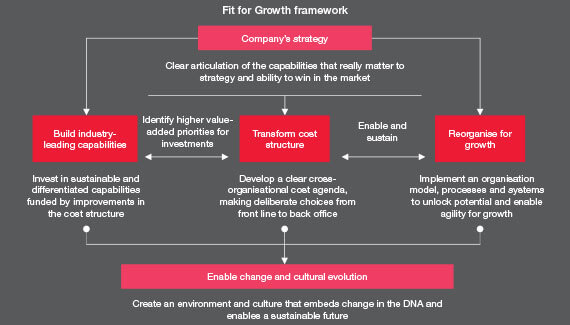71% of CEOs in India very confident of their company’s growth prospects, far more than the global average: PwC Survey
04/18/17
- 47% of them believe that in the next five years disruptive technological innovations will have a significant impact on competition in their industry
- 56% of CEOs in India are exploring the benefits of humans and machines working together
Mumbai, 18 April 2017: Against the backdrop of uncertain economic growth and rapid technological changes, CEOs in India continue to be confident of their company’s growth prospects in the coming 12 months. According to PwC’s 20th CEO Survey (India report), 71% of respondents are very confident of their company’s prospects for revenue growth over the next 12 months. They are far more optimistic with respect to growth prospects than their global counterparts (38%), counterparts in China (35%) and Brazil (57%).
The factors behind this burgeoning optimism are strong growth fundamentals such as favourable demographic profile, rising income levels and urbanisation. The other special trigger to this optimism are the upcoming policy reforms to be implemented in the near-term and increase in Foreign Direct Investment (FDI).
The report further mentions that CEOs in India are also tapping select large markets outside the home turf and in countries such as the US, China and UK.
Shyamal Mukherjee, Chairman, PwC India said, “It is encouraging to see that CEOs continue to be confident of their revenue growth prospects given the volatility of the dynamic business environment in India. They are embracing the mantra ‘cut costs to grow stronger’—to unlock resources and invest to fuel growth. This shows that a transformational agenda is on the cards. Though disruptive innovation is a priority for CEOs in India, they are in constant need for talent with unique skill sets that could be leveraged in today’s highly automated world.”
What’s on the minds of CEOs in India?
Following are some key findings that showcase the mindsets of the CEOs:
- 80% of CEOs are planning on inducing organic growth
- The skills sets CEOs strongly consider are adaptability, problem-solving, leadership and creativity and innovation
- 77% mentioned the need to create differentiation in their products and offerings by managing data better
In addition, availability of key skills, uncertain economic growth, speed of technological change, inadequate basic infrastructure and over-regulation are amongst the main concerns cited by the CEOs.
Three key themes on the CEO agenda
Central to the CEO’s agenda is growth in the face of significant uncertainty and rapid change. More than ever before, this calls for building a transformation agenda along three key themes:
Being Fit for Growth
69% of CEOs in India expect to ‘cut costs to grow stronger’ and reinvest savings into fuelling growth. In our experience, fit for growth companies do three things consistently and continuously: They focus on building a few differentiating capabilities, align their cost structure to these capabilities by over-investing in capabilities that matter and under-investing or eliminating costs from others, and organise well for future growth. (See Chart 1 below)

A strategy that works in a digital world
The term digital appears to evoke both excitement as well as a sense of apprehension among CEOs globally. The India cut, of this year’s survey presents some interesting findings—38% of CEOs in India have observed that over the past five years alone, disruptive technological innovations have had a significant impact on competition within their respective industries; 47% of them believe that in the next five years, disruptive technological innovations will have a significant impact on competition in their industry. Notably, 81% of CEOs in India have stated that it is important to have digital skills, and 66% have already added digital training to their organisations’ learning programmes.
While adopting to technology is not new, however the increasing prominence of a ‘digital strategy’ in core CEO agenda is an interesting shift. A pertinent question most CEOs are now
asking is: ‘What ought to be the key constituents of a robust digital strategy?’ A few CEOs are reframing this question as: ‘What should be our business strategy in an increasingly digital world?’ The latter question takes digital disruption as a given and makes a stronger ask on how the organisation’s business strategy could fit into the new world order.
Bringing together man and machine
While CEOs in global markets are debating the ‘man versus machine’ question, their Indian counterparts believe that the two must coexist to fuel growth. 56% of CEOs in India are exploring the benefits of humans and machines working together. Unlike their global counterparts, 67% of them expect to increase their company headcount over the next 12 months (nevertheless, to some extent, a potential reduction in headcount is likely on account of automation and other technologies). Skill sets such as adaptability, leadership, problem solving, creativity and innovation— capabilities that automation and other technologies cannot execute—are gaining prominence on the agenda of CEOs.
However, this year, 64% of CEOs have stated that it is difficult for their organisation to recruit people with problem-solving skills. Similarly, 74% find it a challenge to recruit talent that is innovative and creative, and 66% have said that it is difficult to recruit talent who are adaptable.
Ends
About PwC
At PwC, our purpose is to build trust in society and solve important problems. We’re a network of firms in 157 countries with more than 223,000 people who are committed to delivering quality in assurance, advisory and tax services. Find out more and tell us what matters to you by visiting us at www.pwc.com.
In India, PwC has offices in these cities: Ahmedabad, Bangalore, Chennai, Delhi NCR, Hyderabad, Kolkata, Mumbai and Pune. For more information about PwC India's service offerings, visit www.pwc.com/in
PwC refers to the PwC International network and/or one or more of its member firms, each of which is a separate, independent and distinct legal entity. Please see www.pwc.com/structure for further details.
©2017 PwC. All rights reserved
Contact us














